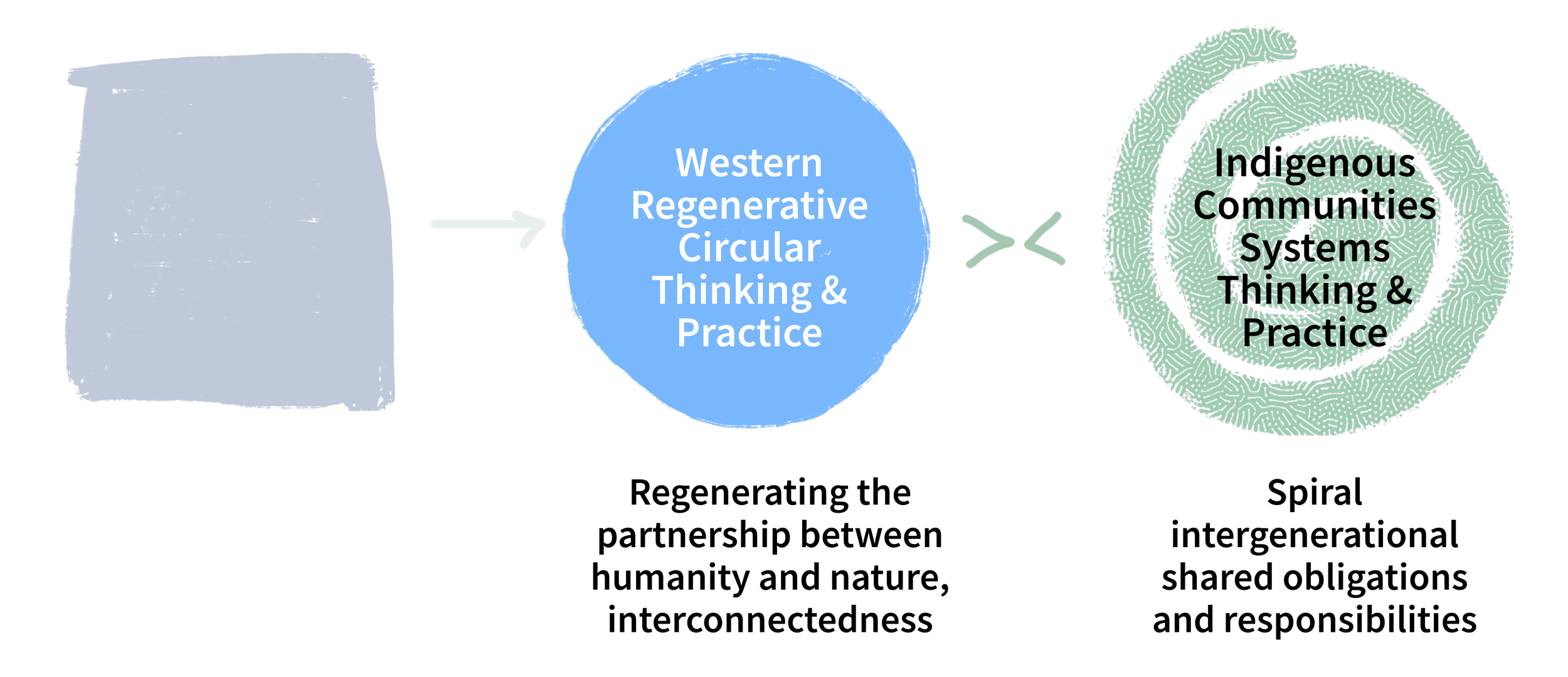Services
Practice Areas
Living Systems Advising/Guidance
Aid non-Indigenous organizations in cultivating their unique gifts and contributions within spiritual-ecological worldviews, fostering alignment with regenerative approaches and enabling ethical collaboration
Collaborative Planning and Reconciling Ways of Knowing
Support the advancement of collaborative projects with Indigenous and settler organizations by building the capacity of settler organizations, cultivating common ground, and aiding the development of appropriate processes and methodologies for interweaving Indigenous and Western approaches
Graphic source - Johnnie Freeland
Offerings
These practices areas are provided through the following offerings:
Support organizations in cultivating alignment with life-affirming values, spiritual-ecological worldviews, and regenerative paradigms.
Nurture regenerative shifts that reflect your organization's unique gifts
Ground strategies in service of people, place, and planet
Cultivating Organizational Alignment with Living Systems
Strategic Planning and Visioning
Help define or reimagine an organization’s vision and direction, and develop grounded, values-aligned pathways for impact
Clarify purpose, set strategic goals, and align resources for long-term contribution
Support internal clarity and coherence while translating vision into actionable plans, policies, and projects
Strategic Alignment and Evaluation
Ensure organizational strategies, initiatives, and activities remain aligned with your highest commitments and beliefs
Build evaluation processes that reflect relational accountability and regenerative purpose
Strengthen internal alignment to support meaningful and ongoing learning
Project Planning and Strategy
Support the development of thoughtful, impact-driven strategies for specific initiatives and collaborations.
Root project design in relationality, context, and strategic purpose, from vision to implementation
Guide teams in defining clear objectives, timelines, and resource flows
Collaboration and Reconciling Ways of Knowing
Facilitate ethical, reciprocal collaboration across Indigenous and non-Indigenous knowledge systems.
Develop approaches that honor distinct knowledge systems while building collective capacity
Co-create spaces for dialogue, co-creation, and navigating complexity across worldviews
Training and Knowledge Sharing
Offer programs and resources to deepen awareness of paradigm shifts, cross-cultural engagement, and responsibility.
Explore spiritual-ecological worldviews and regenerative frameworks
Equip teams to navigate complexity with humility, courage, and coherence













